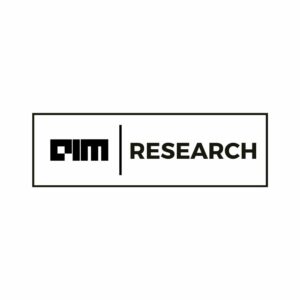

At the recent MachineCon 2023 held in New York on 21st July, Remy Thellier, the Head of Growth & Strategic Partnerships at Vectice, shared his insights on the evolving landscape of machine learning documentation and governance. The interview, conducted by AIM Research, delved deep into the challenges and opportunities that lie ahead for the industry, especially in the face of increasing regulatory scrutiny.
Thellier began by introducing Vectice’s primary focus, which is on the auto-documentation of machine learning projects and their governance. This is becoming increasingly crucial as organizations recognize the importance of transparency in their AI and machine learning endeavors. Leaders across industries are now emphasizing the need for comprehensive documentation to ensure that machine learning projects are not only effective but also transparent and accountable.
One of the most significant drivers of this demand, according to Thellier, is the impending wave of regulations targeting AI and machine learning. He highlighted the EU AI act, which comes with penalties even steeper than those of the GDPR. But it’s not just Europe that’s ramping up its regulatory oversight. Countries like the US, Canada, and India are also introducing their own sets of regulations to ensure that AI technologies are used responsibly and ethically.
This regulatory landscape presents both challenges and opportunities. On one hand, companies need to be more diligent than ever to ensure compliance. On the other, it offers a chance for organizations to showcase their commitment to ethical AI practices, setting them apart from competitors.
When asked about the ethical implications of AI and the role of transparency, Thellier emphasized two main points. First, cross-functional documentation is essential. It ensures alignment across various teams and highlights the value that AI brings to the table. Second, given the plethora of tools and technologies that have emerged in recent years, having visibility and documentation across all these platforms is a challenge. This is especially true when one considers the need to document not just the modeling aspects but also governance, risk, and business implications.
Vectice’s focus, as Thellier explained, is to bridge this gap and provide organizations with the tools they need to document their AI projects comprehensively, ensuring compliance with regulations and promoting transparency.
As AI continues to permeate every aspect of business and society, the need for transparency, documentation, and governance becomes paramount. Leaders like Remy Thellier and companies like Vectice are at the forefront of this movement, ensuring that as we harness the power of AI, we do so responsibly and ethically.
📣 Want to advertise in AIM Research? Book here >

Cypher 2024
21-22 Nov 2024, Santa Clara Convention Center, CA
A Vendor Briefing is a research tool for our industry analysts, and an opportunity for a vendor to present its products, services and business strategies to analysts who cover the vendor specifically or a related technology or market.
AIM Research encourages technology vendors and agencies to brief our team for PeMa Quadrants, when introducing a new product, changing a business model, or forming a partnership, merger, or acquisition.


